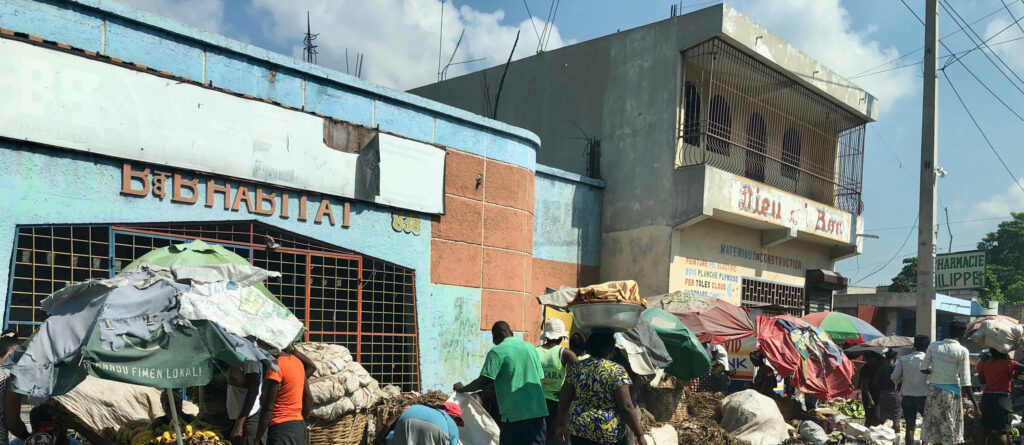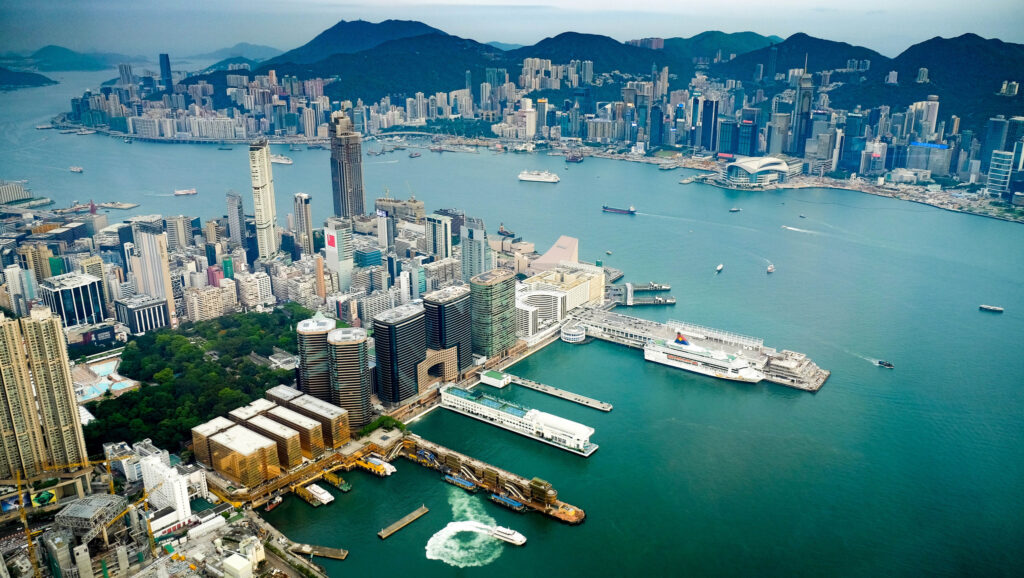LOS ANGELES — Just a few weeks ago, a 7.2 magnitude earthquake devastated Haiti’s southwestern region. The survivors, still burying the dead and mourning the lost, are in desperate need of aid that is just barely trickling into the country.
This earthquake bears a striking resemblance to the one that occurred 11 years ago and crippled the country, with lingering impacts that can still be seen today.
In January 2010, a monumental earthquake brought the country, already standing on shaky political and economic legs, to its knees. Experts estimate the earthquake caused between $8 to $14 billion in damage and approximately 3 million people, roughly one-third of the overall population, were affected. An estimated 1.2 to 2 million people were displaced.
This damage was sustained in a country the United Nations had already designated as one of the 50 “least developed countries” around the world. Even before the earthquake’s devastation, Haiti already faced a higher risk of failing to combat poverty and required the international community’s highest degree of attention and assistance.
Then-President Rene Préval described conditions in his country as “unimaginable,” and appealed for international aid. After this appeal, countless countries pledged aid, sent supplies and deployed troops to help find survivors and rebuild the country. The World Bank and the International Monetary Fund each provided $100 million in emergency funding. United Nations Secretary-General Ban Ki-moon had the UN release $10 million in assistance, while the European Union announced $4.3 million in aid.
The international community collaborated and sent billions of dollars to help Haiti recover; and the money has kept thousands of nongovernmental organizations active in Haiti over the years.
However, with heavy inflows of aid, a controversial debate in the international community has arisen. Has ongoing monetary assistance helped Haiti or has it given the country a dependency problem?
Assistance and Dependence
Despite all the aid, food, medical tents and displacement camps, the country is still struggling. Some Haitians never left the displacement camps they moved to following the earthquake. Others live in slums with no running water, electricity or sewage facilities. Many critics of aid programs have argued that this culture of aid dependency continues because international aid staff and NGOs have filled the governance role that the Haitian government should be playing.
The U.S. Institute of Peace found that foreign donors bypass the Haitian government and funnel financial and material assistance through NGOs. These projects often have more money than the entire Haitian Ministry of Planning. As a result, the Haitian government continues to have little chance to develop the human or institutional capacity to deliver public services.
Many Haitian people rely on foreign aid and NGOs in place of their national government. Additionally, Haiti’s extensive foreign aid leaves the government few incentives to carry out the institutional reforms necessary to rebuild the country.
Further, all the food aid provided by the international community undercut the domestic agriculture market. The earthquake left most of the farms and food supply sources intact. But many perishables in Port-au-Prince were destroyed due to lost power and collapsed buildings.
The international community thought it needed to solve a food supply crisis, when in reality, it was an exchange that needed to be fixed. A farmer who made his or her living growing food, rather than selling it at the market, was devastated much less by the earthquake than by the fact that their customers could not access enough cash to buy products. By the time cash began flowing again, the market had been flooded with food aid to the point that selling food for a profit was nearly impossible.
This cycle continues today. The ongoing supply of food aid shipped into Haiti makes it impossible for local farmers to compete with free food aid.
It is not just the 2010 earthquake that factors into Haiti’s troubles. Haiti’s history is complex, violent, and tumultuous, yet the people remain remarkably resilient through decades of exploitation, oppression and natural disaster.
Historical Context
What was once considered France’s richest colony is now considered the poorest country in the Western hemisphere. To understand Haiti’s current situation, it’s important to understand the country’s history.
Haiti gained its independence from France in 1804, but the United States would not recognize Haiti as an independent country until 1862. France recognized Haitian independence in 1825; however, they imposed reparations on its former slaves for lost income. As a result, Haiti had to take loans with French banks to cover the debt and would not fully repay the loans until 1947.
In 1915, the Haitian President was assassinated, and President Woodrow Wilson sent the Marines into Haiti to restore order and maintain political and economic stability in the Caribbean. The U.S. took this interest in Haitian stability as they did not want a foreign power coming into the Caribbean and also saw Haiti as a potential naval base. The U.S. withdrew its occupation in 1934, but continued to wield financial control and political influence over the country.
In 1937, the long-standing rivalry between the Dominican Republic and Haiti drew blood. Dominican dictator Rafael Trujillo ordered the military to begin executing Haitian families and Dominicans of Haitian descent. The killings lasted between five and eight days. Afterward, Trujillo refused to acknowledge his government’s role in the massacre or accept responsibility. This further complicated relations between the already rivals.
In 1957, Francois “Papa Doc” Duvalier took power with military backing by the Tontons, ushering in a period defined by widespread human rights abuses. The Tontons were rewarded for their loyalty to Duvalier with licenses to torture and murder thousands of Haitians. Most of the time, the Tontons made examples of their victims and left their bodies out in the streets so fellow Haitians would see what could happen if they resisted Duvalier.
Papa Doc left a dismal legacy. Haiti’s literacy rate hovered at a mere ten percent. Yaws, tuberculosis and malnutrition ran rampant. Per capita income for Haiti’s 4.5‐million people was about $75 a year, compared with the Latin‐American average of about $400. His presidency lasted until his death in 1971, when his son took over as leader of Haiti for fifteen years, ending in his exile in France.
Beginning in 1986, a string of coups, resignations, oustings and protests occurred, leaving Haiti’s leadership in constant turmoil. In 1994, U.S. troops intervened once again to oust the military regime and implement a democratic election and president. The Haitian President was eventually forced to leave after the disputed results of his second election, and the nation erupted in violence again.
Recent Political Struggles
Despite Haiti’s long history of political turmoil and the international community’s many attempts to rebuild Haiti, the country remained dependent on aid. And when the country was struck again with political violence and yet another devastating earthquake, the situation only became more bleak.
On July 7, just a little more than a month before the quake, Haitian President Jovenel Moïse was assassinated in his own home. The assassins who raided Mr. Moïse’s compound killed a president who ascended to power in 2016, winning the election with only about 600,000 votes. A mere 18% of voters cast ballots, inciting widespread accusations of fraud.
Moïse insisted in February of 2021 he would stay as president for an extra year to compensate for the length of time his term was delayed due to the fraud accusations. Many critics argued this move was unconstitutional.
Violence and turmoil erupted in the nation’s capital following his statement. Protests erupted with people demanding his resignation and for there to be new elections. After the assassination, Prime Minister Ariel Henry became the interim president and announced new election would take place in November 2021. Then the earthquake hit.
The disaster killed at least 1,419 people and injured thousands more. It prompted pledges of support from UN bodies, the U.S. Agency for International Development (USAID), the Red Cross and governments around the world.
However, the Haitian people are urging donations to be better utilized than previous disaster aid.
“We will not repeat the same things that were done in 2010,” Prime Minister Ariel Henry said. “A lot of donations were made to the country, and a lot of money was spent without seeing the impact.”
This time around, foreign aid is being looked at to help foster growth and development. Instead of bringing in NGOs and outside governments to continue this dependency relationship, some hope the aid will provide the tools and skills necessary for Haitians to survive independently.
A study done by Tulane University on the effects of the foreign aid given to Haiti after the 2010 earthquake found that “humanitarian efforts did not contribute significantly to making Haiti more resilient to disasters and may even have caused harm.” The study further argued that “the humanitarian response often undermined Haitian organizations due to the poaching of staff, and because they could not compete with larger, international NGOs for support, or lacked access to the decision-making process.”
Malick Ghachem, an associate professor of history at the Massachusetts Institute of Technology and an expert on Haitian politics told NBC News that, “Haiti has been locked in a worsening spiral of political instability since the 2010 earthquake.”
Ghachem went on to elaborate on how the U.S. and the international community should be engaging Haiti in a dialogue that allows the country to exit its current constitutional void and gives it a chance to establish durable democratic institutions.
Haiti continues to reel from recent natural and political disasters. As the international community grapples with its assistance response, the world watches closely. And perhaps this time around, countries can provide political stability and the monetary tools necessary for Haiti to become a resilient country, both with and without foreign aid.







